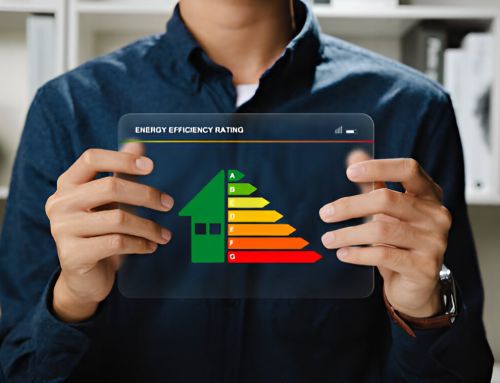
As regulatory landscapes evolve, the significance of the Energy Performance Certificate (EPC) for landlords continues to grow, particularly in urban areas like London. The requirement to maintain a minimum energy efficiency rating not only influences property marketability but also implicates legal compliance and potential financial penalties. This raises critical questions about the obligations and challenges landlords face in upgrading property performance to meet or exceed the mandated standards. How do these regulations affect property values, and what strategic investments can landlords make to enhance their energy ratings? Exploring these dynamics could reveal both the complexities and opportunities that lie ahead for property owners. Let’s understand the Energy Performance Certificate for Landlords.
What is an EPC and Why is it Important?
An Energy Performance Certificate (EPC) is an essential document that quantifies the energy efficiency of a property on a scale from A (most efficient) to G (least efficient). The EPC includes information about a property’s energy use and typical energy costs, coupled with recommendations on how to reduce energy consumption and save money.
This certification is crucial not only for energy conservation but also for informing potential buyers or tenants about the property’s energy stature, thus influencing their decisions.

Understanding the EPC’s components is vital for stakeholders. It encompasses details such as the property’s total energy performance, heating and hot water efficiency, and its environmental impact in terms of carbon dioxide emissions.
The assessment is performed by a qualified assessor who visits the property, conducts an audit of energy outputs, and inputs data into standardized software to generate the certificate.
The significance of an EPC extends beyond mere compliance. It serves as a benchmark for improving energy efficiency, thus playing a pivotal role in the broader context of environmental sustainability.
EPC Requirements for Landlords in London
Building on the general importance of Energy Performance Certificates, specific regulations apply to landlords in London, which merit close examination. In the capital, where environmental standards are rigorously upheld, landlords must navigate a series of stringent EPC requirements to ensure compliance and optimize property performance.
Here are the key requirements:
- Minimum Rating Enforcement: Properties rented out in the London area must have an EPC rating of at least E. Those failing to meet this criterion are subject to substantial fines and restrictions on rental activities.
- Renewal and Validity: An EPC in London is valid for 10 years. However, landlords are encouraged to renew these certificates if significant energy efficiency improvements are made to the property.
- Display Requirements: For buildings with a total floor area of over 500 square meters that are frequently visited by the public, the EPC must be displayed prominently.
- Compliance Checks: Local authorities in London conduct random compliance checks to ensure that EPCs are not only obtained but are also accurate and reflect the current status of the properties.
- Exemptions and Exceptions: There are specific exemptions available, such as for listed buildings; however, these require rigorous documentation to substantiate any claims of exemption.
Landlords must approach these requirements with diligence, as compliance not only enhances property appeal but also ensures alignment with London’s ambitious sustainability objectives.
How to Obtain an EPC for Your Property
Obtaining an Energy Performance Certificate (EPC) is a critical step for landlords aiming to comply with legal requirements and enhance the energy efficiency of their properties.

To secure this certificate, a landlord must first contact an accredited domestic energy assessor. This professional will evaluate the property’s energy features, including insulation, heating systems, and double glazing, among others.
The process begins with the assessor’s visit, during which they collect data relevant to energy usage. This data is then analyzed to generate the EPC. Landlords need to provide complete access to their properties during the assessment to ensure comprehensive data collection.
The duration of the assessment varies depending on the property’s size and complexity but generally takes between one to two hours.
Upon completion, the EPC is promptly made available to the landlord, typically within 48 hours. The document is valid for ten years and must be presented to new tenants or buyers. Landlords are advised to keep a copy of the EPC for record-keeping and future reference.
Choosing a reputable and accredited assessor is paramount to ensure the accuracy and reliability of the Energy Performance Certificate.
Landlords should verify the assessor’s credentials and seek referrals or reviews to ascertain their professionalism and efficiency in the field.
Understanding EPC Ratings
Once the Energy Performance Certificate (EPC) is acquired, landlords and prospective tenants can significantly benefit from understanding the ratings it includes. The EPC rates properties on a scale from A to G, where A represents the most efficient and G the least. This rating is pivotal in assessing a property’s energy performance and its impact on operational costs.
The ratings are calculated based on factors such as insulation quality, heating systems, and renewable energy usage. A higher rating not only suggests lower energy consumption but also indicates lower carbon emissions.
Here are key aspects of the EPC ratings:
- Energy Efficiency: A measure of a property’s overall efficiency. Higher ratings (A or B) suggest lower energy costs.
- Environmental Impact (CO2): Indicates carbon dioxide emissions, with lower scores reflecting better environmental stewardship.
- Estimated Costs: Provides prospective occupants an estimated annual energy cost for the property.
- Recommendations: Each certificate includes tailored suggestions for improving the property’s energy performance.
- Validity Period: EPCs are valid for 10 years, after which a new assessment is required.
Understanding these components allows landlords to market their properties effectively and helps tenants make informed decisions about their potential energy expenditures.
Tips to Improve Your EPC Rating
Enhancing a property’s Energy Performance Certificate (EPC) rating not only boosts its marketability but also reduces operational costs significantly. To achieve a higher EPC rating, landlords should consider several strategic interventions.
Firstly, upgrading insulation is paramount. Well-insulated roofs, walls, and floors retain heat more efficiently, decreasing the need for excessive heating and thereby enhancing the energy efficiency of the property.
Secondly, modernizing heating systems can lead to substantial improvements in EPC ratings. Replacing outdated boilers with more efficient models or considering renewable energy sources like solar panels can drastically reduce energy consumption.
It’s crucial to ensure that these systems are correctly installed and regularly maintained to optimize their performance.
Thirdly, replacing old windows with double or triple-glazed options can significantly prevent heat loss.
Alongside, LED lighting should replace less efficient bulbs as they consume less power and have a longer lifespan, contributing to better energy conservation.
Cost of Getting an EPC in London
Typically, the cost of acquiring an Energy Performance Certificate (EPC) in London varies, largely depending on factors such as the size of the property and the agency conducting the assessment.

To elucidate, here are some critical points:
- Property Size: Larger properties generally incur higher fees due to the increased time and complexity involved in evaluating numerous rooms and energy systems.
- Agency Rates: Costs can differ markedly between agencies. It’s prudent for landlords to solicit multiple quotes to ensure competitive pricing.
- Location Accessibility: Properties located in areas with difficult access may lead to additional charges, reflecting the extra effort required for assessors to perform their duties.
- Assessment Duration: The time taken to complete an assessment can affect the cost. Complicated layouts or older properties that require a more thorough review can increase the duration and, consequently, the price.
- Market Conditions: The demand for EPC assessors and seasonal fluctuations can impact pricing. It’s wise to consider the timing of your assessment to potentially benefit from lower rates during off-peak periods.
Understanding these factors will enable landlords to effectively manage the costs involved in obtaining an EPC, ensuring compliance without unnecessary expenditure.
EPC Renewal: How Often is it Needed?
Energy Performance Certificates (EPCs) are valid for ten years, necessitating periodic renewal to ensure that property energy assessments remain current and reflective of any modifications or improvements made. This requirement not only ensures compliance with regulations but also promotes the adoption of energy-efficient practices, which can significantly lower operational costs and increase the property’s market value.
For landlords, understanding the frequency and timing of EPC renewals is crucial for maintaining legal compliance and maximizing rental appeal. An outdated EPC can deter potential tenants who are increasingly environmentally conscious and looking for energy-efficient homes.
| Renewal Trigger | Emotional Impact | Financial Impact |
|---|---|---|
| End of Validity Period | Assurance of compliance | Avoidance of penalties |
| Major Renovations | Increased property appeal | Higher rental income |
| Change in Tenancy | Attraction of eco-conscious tenants | Enhanced competitiveness |
| Regulatory Updates | Alignment with the latest standards | Potential cost savings |
Landlords should not view EPC renewals as mere legal formalities but as opportunities to evaluate and improve the energy efficiency of their properties. By strategically timing these assessments, they can not only ensure compliance but also enhance the intrinsic value of their investments, making them more attractive to a discerning, environmentally aware rental market.
Conclusion
In conclusion, the Energy Performance Certificate is a crucial tool for landlords in London, ensuring properties meet regulatory standards and energy efficiency. By obtaining and maintaining an EPC, landlords not only comply with legal requirements but also enhance property marketability and contribute to environmental sustainability. Regular renewal of the EPC is advisable to keep energy performance optimal. Ultimately, this certification process benefits landlords, tenants, and the broader community by promoting energy conservation and awareness.
About the Author: LandlordCertificate
Related Posts
Get Social
Recent Posts
- Choosing the Right Consumer Unit for Fuse Box Installation London in Properties
- Electrical Diagnostic London: How Professional Testing Keeps Your Property Safe and Compliant
- Asbestos Management Survey London: Update Your Property Records
- Gas Safety Certificate London: Why Regular Checks Save Money Long-Term
- FRA London Explained: How a Professional Fire Risk Assessment Keeps You Compliant and Safe













